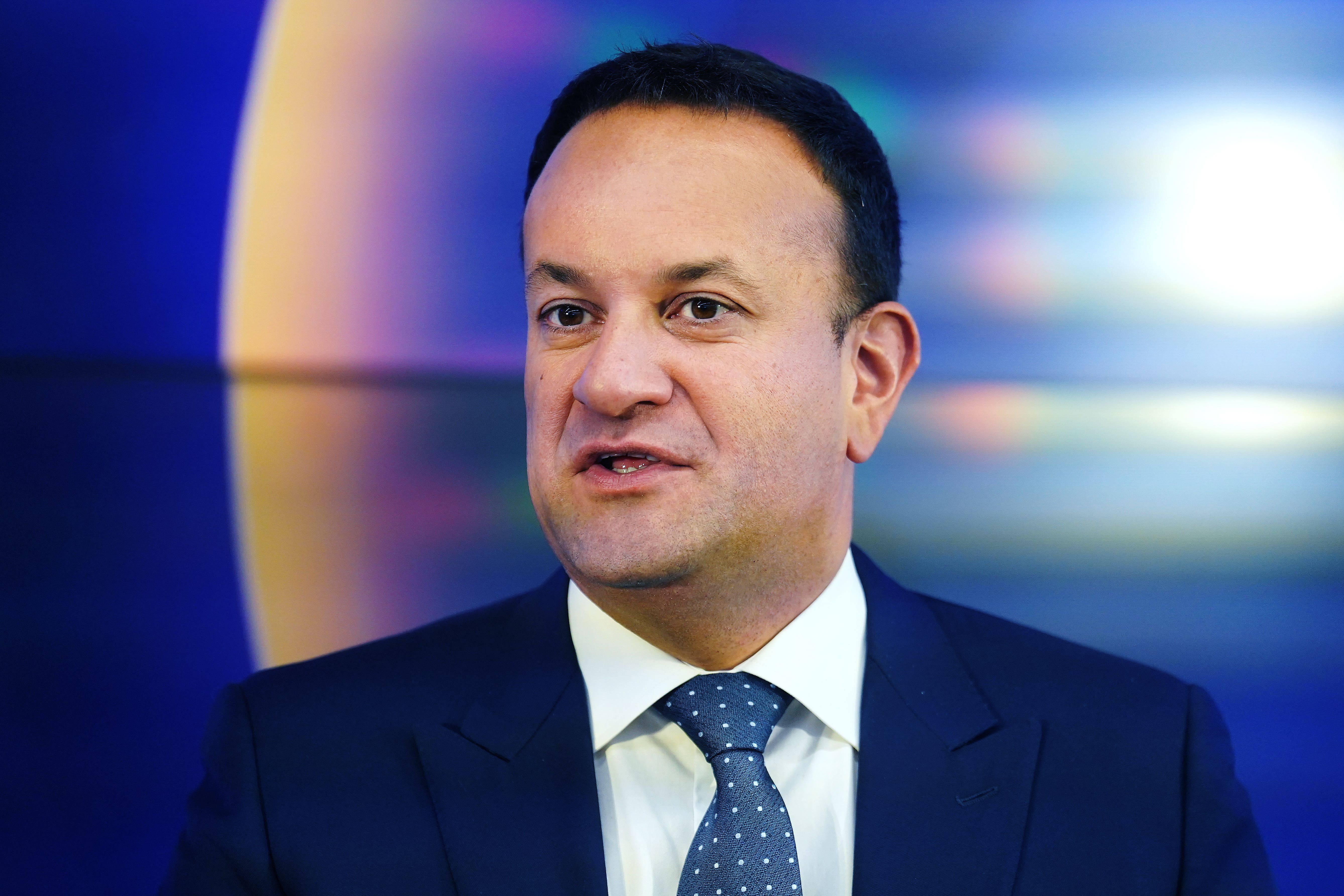Irish premier says EU position on Israel-Palestine conflict is evolving
Leo Varadkar said he was satisfied with the language of an agreed statement from 27 EU leaders issued on Thursday.

Irish premier Leo Varadkar has said he believes the EU position on Israel-Palestine is “evolving” and that it would have a role to play in any future peace conference.
Mr Varadkar has said it is “possible” that EU states could update their statement to call for an Israel-Hamas ceasefire in the future, adding that the decades-long conflict would not end with military action.
On Thursday, EU leaders reiterated a condemnation of Hamas for “brutal and indiscriminate terrorist attacks across Israel”.
The European Council also strongly emphasised “Israel’s right to defend itself in line with international law”, while reiterating the importance of protecting civilians.
It also called for the implementation of humanitarian corridors and pauses to allow for the delivery of aid to Gaza.
Mr Varadkar, who had previously said that European Commission president Ursula von der Leyen’s comments on the conflict had “lacked balance”, said he was “satisfied with the language” of Thursday’s statement.
Speaking to reporters on the second day of a European Council meeting in Brussels, he said that countries were approaching the conflict from different perspectives.
“It was always going to be difficult to come to a compromise language that 27 countries with very different perspectives could sign up to.”
He added: “I think what you see over the last couple of weeks is an evolving European position.
“If you went back two, three weeks ago, it appeared that the European Union was supporting Israel without any equivocation or qualification.
“That changed a week or so ago to continuing to support Israel’s right to defend itself, but emphasising the supremacy of international law, particularly humanitarian law, to yesterday 27 countries calling for a pause to allow aid to get in, and to allow citizens and hostages to get out.
“So I think you’re seeing an evolving position there.”
He added: “But one thing I should say is that we’re all united on from day one, and continue to be united on, and that is total condemnation of the attacks carried out by Hamas.
The history of this conflict didn’t begin with the attacks on October 7, and won’t end with a land war in Gaza
“The fight against terrorism is a common European fight and there can be no equivocation on that.”
Asked about criticism of the EU’s response to the humanitarian situation in Gaza, Mr Varadkar said some countries would be “uncomfortable” with a common foreign affairs and defence policy.
“The option we have into the future is to have a common foreign policy, but that means being willing to be outvoted on occasion and I think people would be uncomfortable with that, too.
“But that’s a debate, I think, for another day,” he said.
Mr Varadkar reiterated his view of the EU willing to be part of any future peace conference, stating: “I think European Union has a role to play in that regard in particular.”
“The history of this conflict didn’t begin with the attacks on October 7, and won’t end with a land war in Gaza.
“It’s very, very clear – 75 years or more of conflict between Israel and the Arabs, wars, terrorist attacks, huge instability.
“This won’t end because of a military solution and can’t.”
Mr Varadkar added that there was intense concern about the Israel-Hamas conflict escalating into increasing tensions in other regions, such as Lebanon.
The Irish Government has advised citizens in Lebanon to consider leaving the region while commercial options remain available.
“I think we’re all worried about the situation in Gaza escalating into a wider conflict involving the West Bank, involving Hezbollah and Lebanon, involving Iran and others,” he said.
“That’s a big concern that I think we all have and it really emphasises the need for a pause, for being able to get humanitarian aid in, hostages out, EU citizens being allowed to leave.
“And then in time, moving towards a peace conference, I think the European Union has a role to play in that regard in particular.”
Bookmark popover
Removed from bookmarks